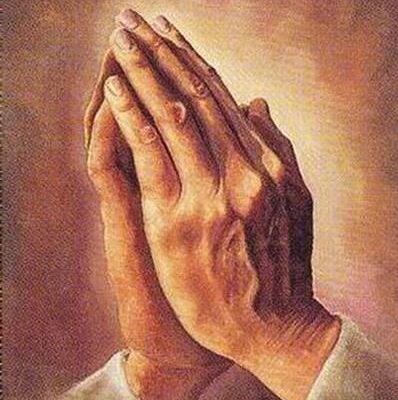Explore the significance of Mary as the Tower of Ivory, embodying purity and strength in religious beliefs. Discover the symbolism and devotion surrounding her title.
Mary, Tower of Ivory: Her Purity and Strength
Mary, often referred to as the Tower of Ivory, embodies qualities of purity and strength throughout various religious beliefs and traditions. In this article, we will explore the significance of Mary as the Tower of Ivory and delve into the themes of purity and strength associated with her name. Let’s dive into the fascinating world of devotion to Mary and the symbolism behind her title.
The Significance of Mary as the Tower of Ivory
Mary’s title as the Tower of Ivory holds great significance in Christian theology, symbolizing her purity and strength. The tower represents Mary’s steadfastness in faith and her unyielding devotion to God. The ivory symbolizes her purity and innocence, untouched by sin. This title emphasizes Mary’s role as a protector and defender of believers, guiding them in their spiritual journey.
Mary’s purity is seen as a beacon of hope for Christians, reminding them of the importance of living virtuous and faithful lives. As the Tower of Ivory, Mary stands tall and unblemished, offering comfort and solace to those who seek her intercession. Her strength and unwavering faith inspire believers to trust in God’s providence and to emulate Mary’s virtues in their own lives.
Symbolism in Mary, Tower of Ivory
The symbolism of Mary as the Tower of Ivory can be interpreted in various ways, each carrying deep spiritual significance. The tower represents Mary’s protection and defense of believers, shielding them from harm and guiding them towards salvation. The ivory symbolizes her purity and innocence, highlighting her role as the embodiment of grace and virtue.
Mary’s purity as the Tower of Ivory serves as a model for believers to strive for holiness and to lead lives of integrity and faithfulness. Her strength in the face of adversity and challenges inspires Christians to stand firm in their convictions and to trust in God’s mercy and love.
Devotion to Mary as Tower of Ivory
Devotion to Mary as the Tower of Ivory dates back centuries, with believers seeking her intercession and protection in times of need. Many religious practices and traditions revolve around honoring Mary as the Tower of Ivory, including prayers, hymns, and celebrations dedicated to her. Devotees look to Mary for guidance and strength, believing in her power to intercede on their behalf.
Prayers to Mary, Tower of Ivory
Prayers to Mary as the Tower of Ivory are a common practice among Catholic and Orthodox Christians, who turn to her for help and consolation. The Hail Mary, a traditional prayer that honors Mary as the Mother of God, is often recited by believers seeking her intercession. Other prayers, such as the Memorare and the Rosary, also invoke Mary as the Tower of Ivory, asking for her protection and guidance.
Devotion to Mary as the Tower of Ivory extends beyond prayer, with believers showing their love and reverence for her through acts of service and devotion. Many churches and religious institutions are dedicated to Mary under this title, serving as places of worship and pilgrimage for those seeking her presence and blessings.
Mary, Tower of Ivory in Art and Literature
Mary’s depiction as the Tower of Ivory has inspired countless works of art and literature throughout history, showcasing her purity and strength in various forms. Paintings, sculptures, and stained glass windows often depict Mary as a tower, symbolizing her role as a fortress of faith and a beacon of hope. Literature, poetry, and music also celebrate Mary as the Tower of Ivory, reflecting her virtues and qualities in lyrical and artistic expressions.
Artistic Representations of Mary, Tower of Ivory
Artistic representations of Mary as the Tower of Ivory can be found in churches, museums, and galleries around the world, showcasing her beauty and grace. Paintings by renowned artists such as Botticelli, Raphael, and Michelangelo capture Mary’s purity and strength, depicting her as a majestic tower rising above earthly concerns. Sculptures and statues of Mary as the Tower of Ivory convey her maternal love and protection, inspiring devotion and reverence in believers.
Literature and poetry that honor Mary as the Tower of Ivory often explore themes of faith, redemption, and divine grace. Poems by writers such as Dante, Milton, and Wordsworth celebrate Mary’s virtues and qualities, praising her as a paragon of holiness and purity. Musical compositions dedicated to Mary as the Tower of Ivory convey a sense of reverence and awe, evoking the spiritual essence of her presence.
Mary, Tower of Ivory: A Source of Inspiration
Mary, as the Tower of Ivory, continues to inspire and uplift believers around the world, offering them hope and solace in times of difficulty and uncertainty. Her purity and strength serve as a beacon of light in the darkness, guiding believers towards faith and salvation. By honoring Mary under this title, Christians express their devotion and love for the Mother of God, seeking her intercession and protection in their lives.
Embracing Mary’s Virtues
Embracing Mary’s virtues as the Tower of Ivory can lead believers to a deeper appreciation of her role in their spiritual journey. By reflecting on Mary’s purity and strength, Christians can strive to emulate her example and to live lives of holiness and integrity. Through prayer, devotion, and service, believers can draw closer to Mary as the Tower of Ivory, finding comfort and strength in her maternal presence.
Mary, Tower of Ivory: Her Purity and Strength stand as a testament to her enduring influence and significance in the lives of believers. By honoring Mary under this title, Christians affirm their faith in her intercession and protection, trusting in her guidance and love. As the Tower of Ivory, Mary remains a symbol of purity and strength, offering believers a source of inspiration and hope in their spiritual journey.
